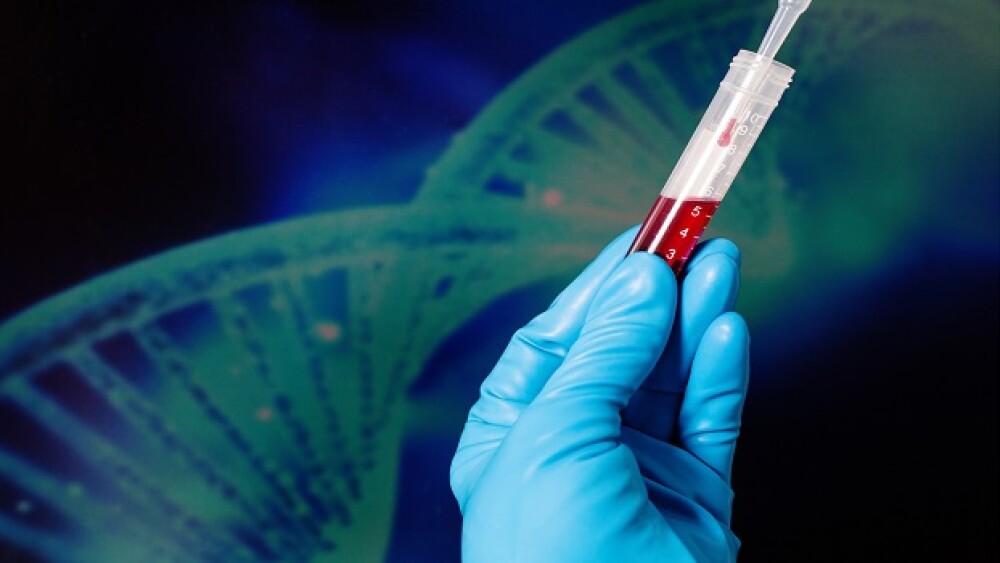An investigational gene therapy treatment for hemophilia A has seen a 97 percent response rate after one treatment for the 12 trial participants, Spark Therapeutics announced this morning.
An investigational gene therapy treatment for hemophilia A has seen a 97 percent response rate after one treatment for the 12 trial participants, Spark Therapeutics announced this morning.
The company said it intends to move its SPK-8011 program into Phase III trials, beginning with a run-in study, in the fourth quarter of this year. Philadelphia-based Spark said 12 participants in the Phase I/II trial received a single dose of SPK-8011 at different strengths. Each of the trial patients saw both a 97 percent reduction in annualized bleeding rate as well as a 97 percent reduction in annualized infusion rate. The 12 patients received the treatments following four weeks of vector infusion, the company said in its quarterly financial report released this morning. Spark noted that the first two trial participants showed stable Factor VIII activity levels for up to 66 weeks. Those two patients have been followed by researchers for more than a year, the company said.
Hemophilia A is a genetic blood-clotting disorder that can lead to uncontrolled bleeding. There are about 20,000 people in the United States diagnosed with hemophilia and 320,000 worldwide Hemophilia A is the most common form. People with hemophilia A either lack or do not have enough of a clotting protein called factor VIII. The bleeding, which often occurs in joints, can cause significant pain and can lead to chronic swelling, deformity, reduced mobility and long-term joint damage.
When the company initiates the Phase III trial, Spark said participants will receive 2x10 vg/kg of SPK-8011, which was the highest dose in the Phase I/II trial. Five of the patients who received a 2x10 dose saw Factor VIII levels between 16 and 49 percent in follow-up examinations conducted 12 to 30 weeks following dosing. The five 2x10 patients saw mean Factor VIII activity of 30 percent following treatment, the company said. Those five patients reduced their overall annualized bleeding rates by 100 percent, as well as their annualized infusion rates by 100 percent, Spark said. Spark added there is evidence of a dose-dependent increase in mean FVIII activity levels across the three dose cohorts.
The trial was not without its issues though. Two 2x10 patients did have an immune response to the treatment that caused their Factor VIII levels to decline to less than 5 percent. Spark said one of the patients who had the negative response did not respond to treatment with steroids and was admitted to the hospital for blood infusions. Additionally, Spark reported that seven of the 12 trial participants received a tapering course of oral steroids in response to elevated levels of alanine aminostransferase (ALT), as well as declining levels of Factor VIII and/or positive IFN-g enzyme-linked immunospots (ELISPOTs). Treatment with steroids led to normalization of ALT and ELISPOTs, Spark reported.
Katherine High, president and head of research and development at Spark, hailed the results of the Phase I/II trial. She said the clinical and safety profile of SPK-8011 are highly encouraging with no Factor VIII inhibitors observed during the study.
“Transaminase elevations above the upper limit of normal have been seen in only three of 12 participants, with no evidence of persistent transaminase elevations. We believe, based on the tempo and magnitude of the immune responses observed, that a prophylactic course of steroids will suppress these responses and should lead to long-term expression of FVIII above 12 percent in all participants at a dose of 2x10 vg/kg of SPK-8011. We plan to implement this prophylactic approach to steroid administration moving forward,” High said in a statement.
While the 97 percent response rate is positive for the company, investors may have been spooked be the need for steroidal treatment for some of the patients. In premarket trading, shares of Spark were down more than 16 percent.
The positive response for SPK-8011 comes about nine months after Spark and Pfizer shared stunning results from a Phase I/II trial for hemophilia B. the trial the patients were injected with SPK-9001, a therapy that helps hemophilia patients generate Factor IX, a blood-clotting protein missing in people with hemophilia B. Following a single treatment with SPK-9001 the presence of Factor IX activity in the body was 34 percent of normal.





